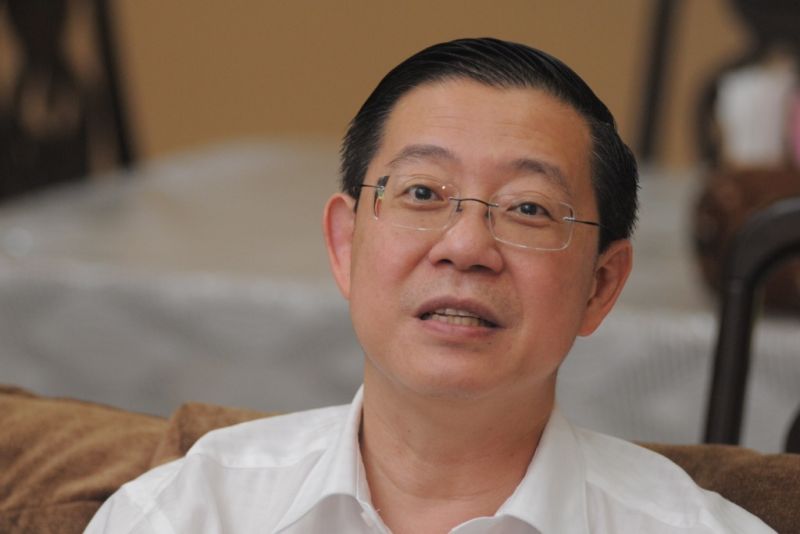GEORGE TOWN, Aug 31 — Penang will adopt economic measures focusing on tourism, housing construction and public infrastructure works, investment in manufacturing and services to counter the recent 20 per cent drop in business, chief minister Lim Guan Eng said today.
The Penang lawmaker attributed the drop in business turnover in the island state to the implementation of Goods and Services Tax (GST) and the almost 30 per cent depreciation of the ringgit.
“Malaysians celebrate a bleak Merdeka following plunging confidence in Malaysia’s economy, public integrity and political accountability that has led to an economic and political crisis,” he said in his Merdeka message issued today.
He said Penang is no exception in facing the economic crisis which is reflected in drop of the ringgit by 28 per cent in the past year to over RM4.20 per US$1.
He attributed the fall of the ringgit and the country’s economic crisis to the RM42 billion 1Malaysia Development Berhad (1MDB) scandal.
“The decrease in the ringgit means Malaysians are poorer by 28 per cent in US dollar terms,” he claimed.
The price Penang paid for the decrease is the state’s drop from a high-income economy back to middle income status, Lim said.
Penang was expected to achieve a GDP per capita of RM42,251 based on a population of 1,681,922 people and a GDP of RM71,063 million by this year 2015.
Penang’s GDP per capita of RM42,251 would have exceeded the benchmark of RM40,841 (or US$12,467 based on the former exchange rate of RM3.27 for US$1) to become a high-income economy.
“Instead of RM40,841 as the benchmark to achieve high-income status, the 28 per cent drop in the ringgit means that the benchmark has been increased to RM52,000,” he said.
The World Economic Forum Human Capital Report defined a high-income economy as one whose Gross Domestic Product or GDP per capita reaches US$12,467 (RM52,361).
Lim pointed out that the harsh reality is that business turnover has not grown but instead plummeted drastically since April due to the implementation of the GST despite claims by Prime Minister Datuk Seri Najib Razak that Malaysia’s economy continues to grow by 5 per cent this year.
He said, unlike the federal government, the Penang state government adopted a model clean leadership that recorded budget surpluses of RM453 million in the six years between 2007 and 2013.
“Clearly, the Penang state government has done better in only six years compared to what Barisan Nasional did in 50 years,” he said.
He said Penang achieved RM48.2 billion worth of investments between 2008 and 2014, which is 93 per cent higher than the RM24.9 billion invested from 2001 to 2007.



















